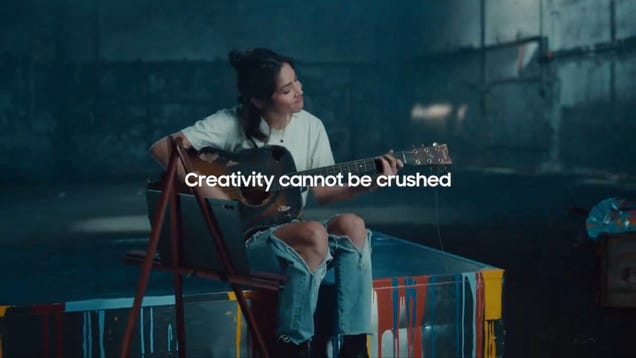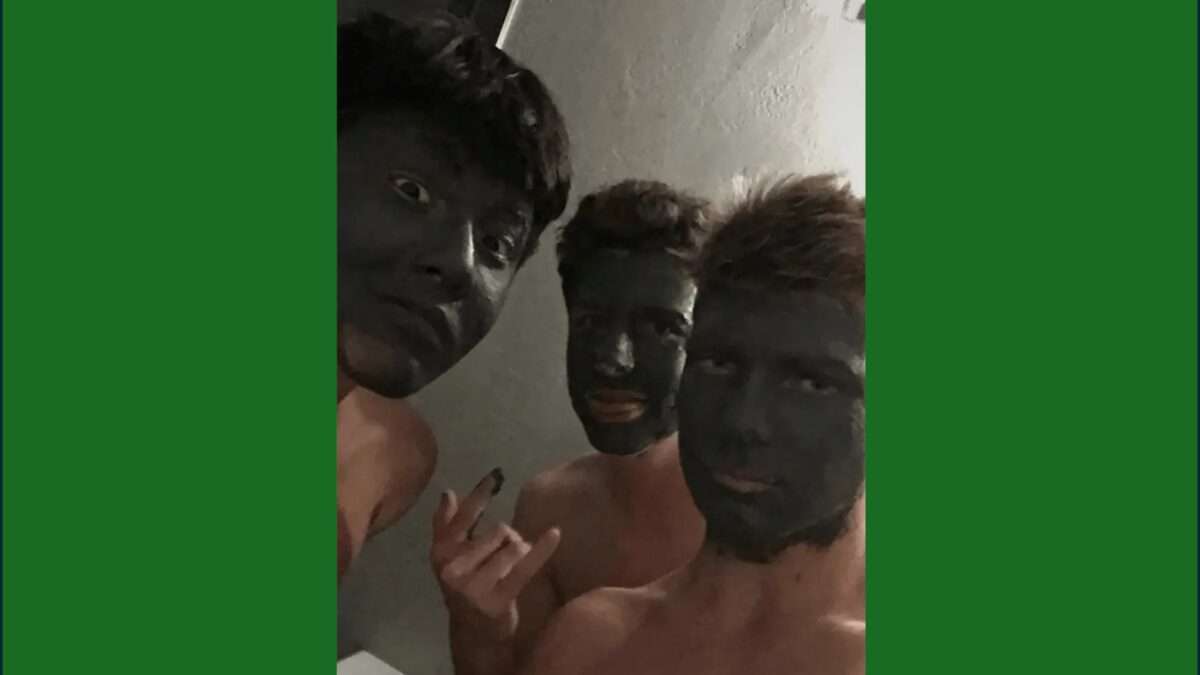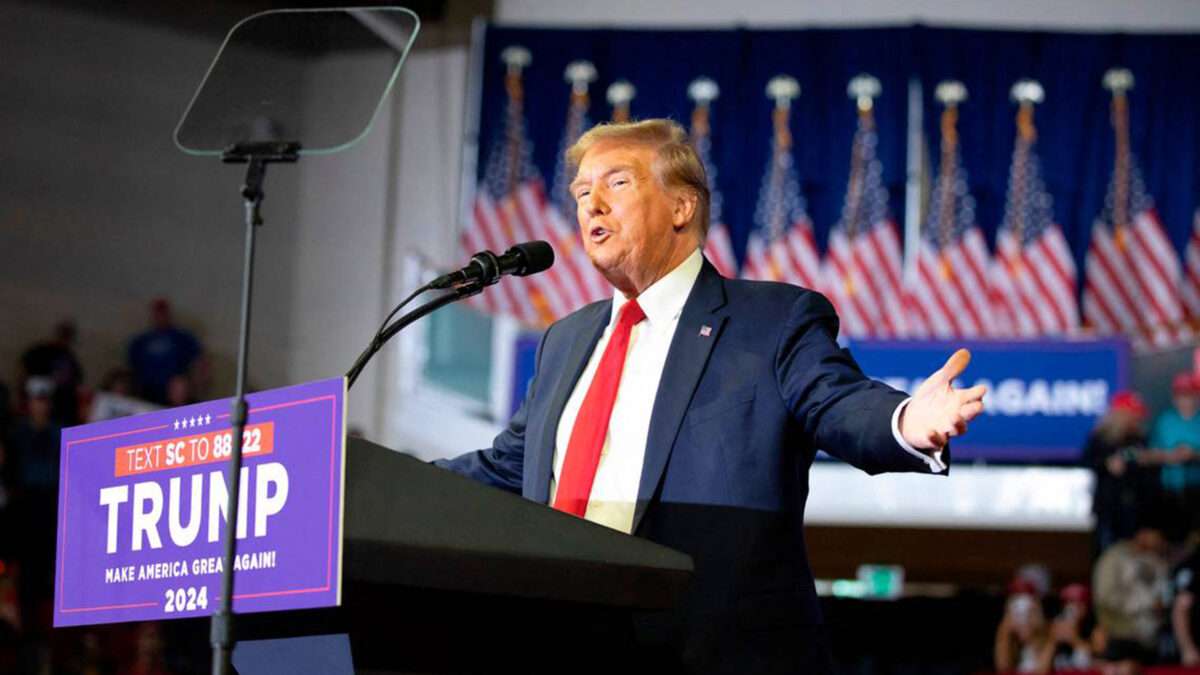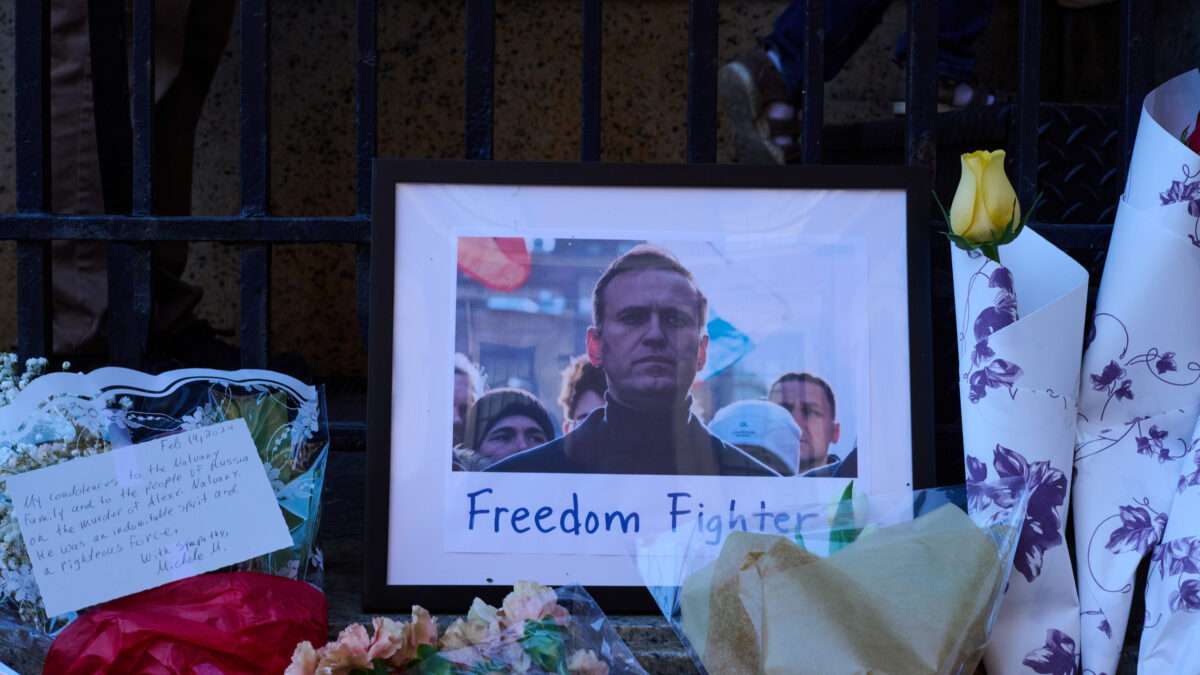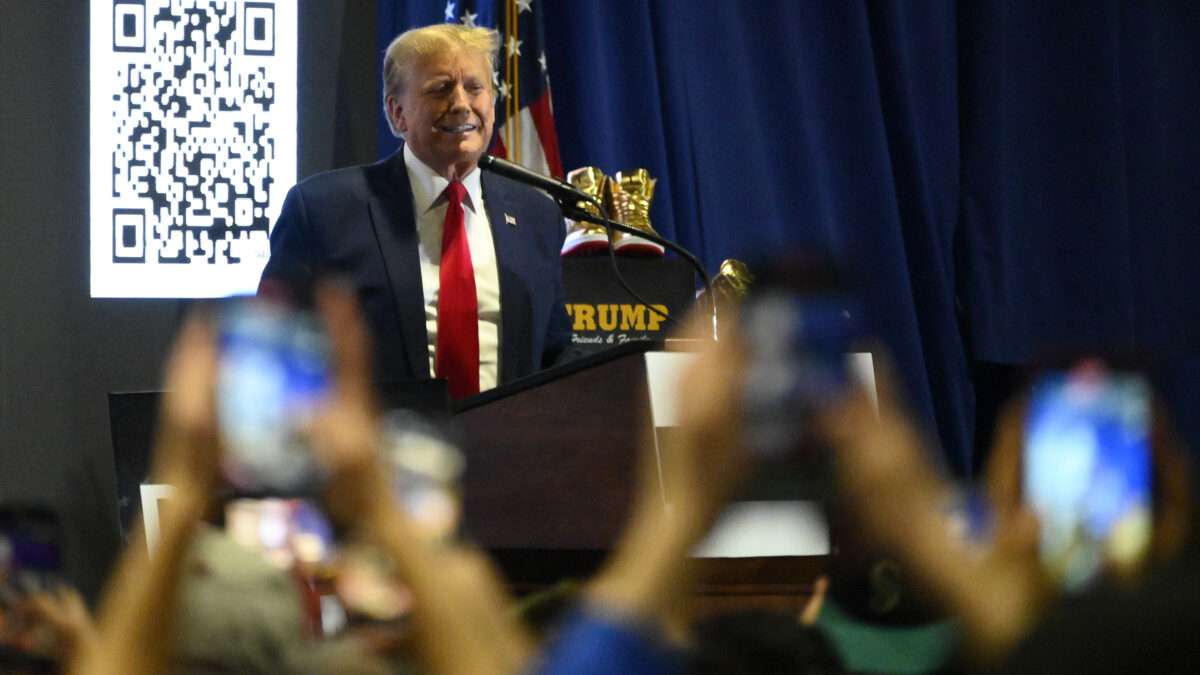These Strange Bedfellows Want SCOTUS To Remind the 5th Circuit That Journalism Is Not a Crime

Sylvia Gonzalez, a former Castle Hills, Texas, city council member, plausibly alleges that she was arrested on a trumped-up charge in retaliation for conduct protected by the First Amendment. So does Priscilla Villarreal, an independent journalist in Laredo, Texas. But in backing up that claim, Gonzalez, whose case will soon be decided by the Supreme Court, faces a problem that Villarreal does not: It is hard to say how often people engage in the conduct that police cited to justify her arrest, which involved putting a petition in her personal folder during a city council meeting. Villarreal, by contrast, was arrested for asking questions, something that journalists across the country do every day.
Last January, the U.S. Court of Appeals for the 5th Circuit nevertheless ruled, in an opinion by Judge Edith Jones that provoked four sharp dissents authored or joined by seven of her colleagues, that Villarreal's arrest was not "obviously unconstitutional." Thirteen briefs supporting Villarreal's petition for Supreme Court review—submitted by an ideologically diverse mix of groups and individuals, including organizations ranging from the Manhattan Institute to the Constitutional Accountability Center—underline the chilling implications of that astonishing conclusion.
"No right is more fundamental to the practice of journalism than the one the Fifth Circuit declined to recognize: the right to ask public officials for information," a brief submitted by the Reporters Committee for Freedom of the Press and 21 news organizations notes. They urge the Supreme Court to resolve the "chilling uncertainty" created by the appeals court's decision and "reaffirm the fundamental proposition that '[a] free press cannot be made to rely solely upon the sufferance of government to supply it with information.'"
Villarreal, who is represented by the Foundation for Individual Rights and Expression, is asking the Supreme Court to uphold that principle, which her arrest blatantly violated. Her alleged crime, the Institute for Justice notes, consisted of "peacefully asking a police officer to corroborate information for two developing stories—a routine due-diligence and newsgathering practice used by journalists across the country." The two stories, which Villarreal posted on her locally popular Facebook page, involved a public suicide and a fatal car crash. Villarreal asked a Laredo police officer to confirm information about those incidents that Villarreal had received from other sources. By doing that, police and prosecutors claimed, Villarreal committed two felonies.
To justify those charges, police cited Section 39.06(c) of the Texas Penal Code, an obscure, rarely invoked law that applies to someone who "solicits or receives from a public servant" information that "has not been made public" with the "intent to obtain a benefit." The claim that Villarreal had violated that law was absurd for several reasons.
First, Section 39.06(c), which deals with "misuse of official information," is part of a chapter addressing "abuse of office." Its roots go back to a 1973 law that applied to "a public servant" who "acquires or aids another to acquire a pecuniary interest in any property, transaction, or enterprise that may be affected by" information that "has not been made public" but to which "he has access in his official capacity." The statute also covered "a public servant" who "speculates or aids another to speculate on the basis of the information." Over the years, legislators broadened the definition of the offense, reclassified it as a felony, and expanded the law beyond government officials. But in light of its history and statutory context, Section 39.06(c) is clearly aimed at curtailing official corruption, not journalism.
Second, the Texas Penal Code defines "benefit" as "anything reasonably regarded as economic gain or advantage." What "economic gain or advantage" did Villarreal allegedly seek to obtain by asking a cop about a suicide and an accident? According to the arrest affidavits, it was an increase in her Facebook traffic. Jones' opinion, which drips with contempt for Villarreal's "journalistic style," notes that she "boasts over one hundred thousand Facebook followers and a well-cultivated reputation, which has engendered publicity in the New York Times, free meals 'from appreciative readers,' 'fees for promoting a local business,' and 'donations for new equipment necessary to her citizen journalism efforts.'" This sweeping definition of "benefit" would apply to any journalist who attracts readers and/or earns money by publishing information that previously "has not been made public."
Third, Section 39.06 defines "information that has not been made public" as "any information to which the public does not generally have access" that is also "prohibited from disclosure" under the Texas Public Information Act (TPIA). The arrest affidavits did not address the latter requirement at all. The 5th Circuit suggested the information that Villarreal obtained was covered by Section 552.108(a)(1) of the TPIA, which says government officials do not have to disclose information when doing so might compromise an ongoing investigation. While law enforcement agencies frequently invoke that vague provision, the information it covers is not "prohibited from disclosure." The TPIA explicitly gives agencies the discretion to release information even when they are not required to do so.
The MuckRock Foundation, which "has helped thousands of journalists, professionals, and ordinary citizens request, share, and understand public records," notes that Laredo's reading of Section 39.06(c) would lead to "the absurd result of imposing liability not only on those who seek 'confidential' information, but on those who request information that the government may, but need not, make public." Under that interpretation, anyone who asks for information that is deemed to be covered by a TPIA exception is committing a felony. As a brief from half a dozen journalists (including me) explains, Texas agencies that don't want to disclose information frequently seek support from the state attorney general's office, which in 2015 "issued over 7,000 rulings based on § 552.108(a)(1) alone." Yet the thousands of people whose TPIA requests are rejected each year have never been "arrested or prosecuted for their requests."
Laredo cops investigated Villarreal for months, so they had plenty of time to consider whether their interpretation of Section 39.06(c) was reasonable. So did the prosecutors who signed off on the case. Yet they did not even bother to present a plausible argument that Villarreal's conduct met the elements of this offense, and they were unfazed by the obvious First Amendment problems with criminalizing basic journalism. The charges were ultimately dismissed by a judge who deemed Section 39.06(c) unconstitutionally vague.
These cops and prosecutors—who, like Jones, were irked by Villarreal's "journalistic style"—were determined to pin charges on her without regard to statutory requirements or constitutional constraints. Yet according to the 5th Circuit, they cannot be held accountable for their vindictive lawlessness because it was not "clearly established" that arresting a journalist for practicing journalism was unconstitutional. Since they supposedly had no way of knowing that, they received qualified immunity.
The Supreme Court grafted qualified immunity onto 42 USC 1983, a federal law that authorizes people to sue government officials who violate their constitutional rights. The doctrine is supposedly designed to protect officials from unanticipated liability for "split-second" decisions in situations where they have little opportunity for careful reflection. That rationale, the Americans for Prosperity Foundation notes, does not apply to the sort of "intentional and slow-moving infringement of First Amendment rights" that Villarreal's case exemplifies. The protections offered by Section 1983, the brief says, "come to nothing where state actors may purposefully infringe First Amendment rights and then rely on prolix state law to trigger qualified immunity, claiming they did not know any better."
In this case, that claim is risible. "Villarreal's arrest obviously violated the Constitution," the Institute for Justice notes. "No reasonable government official would think the First Amendment permits criminalizing plain speech or routine journalism."
Contrary to what the 5th Circuit held, the Young America's Foundation and the Manhattan Institute say, it has been "clearly established for over 50 years" that "journalists and citizens" have a First Amendment right to "ask questions of their government officials." The Supreme Court has upheld that right in a line of decisions beginning with Branzburg v. Hayes in 1972. In that case, the Court rejected the idea that "news gathering does not qualify for First Amendment protection," without which "freedom of the press could be eviscerated."
Seven years later in Smith v. Daily Mail, the Court ruled that West Virginia violated the First Amendment when it prohibited newspapers from publishing the names of juvenile offenders without judicial permission. The justices held that the First Amendment protects "routine newspaper reporting techniques" and that the government may not "punish the truthful publication" of "lawfully obtained" information. As dissenting 5th Circuit Judge James E. Graves Jr. noted, the Supreme Court "has made clear that the First Amendment protects the publication of information obtained via 'routine newspaper reporting techniques'—which include asking for the name of a crime victim from government workers not clearly authorized to share such information."
These longstanding precedents are not the only reason the cops who arrested Villarreal should have known better. As the brief I joined points out, police officers across the country are accustomed to fielding questions from reporters, and department policies frequently encourage them to "work in cooperation with the media," as a general order to Washington, D.C., officers puts it. "Based on the TPIA, police department regulations, officer training on responding to press inquiries, and personal experience dealing with reporters," the brief says, "a reasonable officer would know that journalists are permitted to ask police officers the names of accident and suicide victims. A reasonable officer would know that reporters ask for such information every day."
You might think that Villarreal's arrest, which relied on a quirky reading of a little-used law, poses little realistic threat to journalists in Texas or elsewhere. But the briefs supporting Villarreal emphasize that police can always find an excuse to arrest journalists who annoy them. The brief I joined describes a couple of examples: the 2023 arrest of NewsNation reporter Evan Lambert for "trespassing" by covering a governor's press conference in Ohio and the 2020 arrest of radio reporter Josie Huang for "obstructing a peace officer" by using her phone to record an encounter between protesters and Los Angeles County sheriff's deputies.
"Retaliatory arrests have become an increasingly common occurrence," the Law Enforcement Action Partnership (LEAP) notes. "This trend is a byproduct of the ever-growing size of modern criminal codes." Thanks to those proliferating prohibitions, Justice Neil Gorsuch has observed, "almost anyone can be arrested for something." A cop "who may be inclined to punish a disfavored speaker—such as a journalist, as here—can therefore readily find a minor offense they committed and use that to justify an arrest," LEAP says. If police are emboldened to harass journalists this way, it warns, retaliatory arrests will become even more common.
That threat is especially acute for reporters who do not have the backing of a professional news outlet. Independent journalists Avi Adelman and Steven Monacelli, who "have been arrested or detained by police officers while reporting on law enforcement's public performance of their duties," note that increasingly strict police control of information may force a reporter to rely on the sort of "backchannel source" that Jones condemned Villarreal for using. "If using alternative sources exposes journalists to the risk of official retribution," Adelman and Monacelli warn, "journalists will become little more than conduits for government public relations copy."
Jones dismissed the idea that Villarreal is "a martyr for the sake of journalism." She seems to think independent reporters like Villarreal don't qualify as "real" journalists because they don't follow the rules that "mainstream, legitimate media outlets" do. In addition to criticizing Villarreal's use of a "backchannel source," a standard journalistic practice, Jones faulted her for "capitaliz[ing] on others' tragedies to propel her reputation and career," which is an apt, if cynical, description of what professional reporters routinely do. These criticisms make you wonder if Jones has ever watched the local news or noticed that "mainstream, legitimate media outlets" often carry stories that cite anonymous government sources.
Contrary to Jones' take, the critics who are urging the Supreme Court to overrule the decision she wrote include "mainstream, legitimate media outlets" such as ABC, NBC, The Atlantic, The Boston Globe, The New York Times, and The Washington Post. It is possible they know a little bit more about how journalism works than Jones does.
The post These Strange Bedfellows Want SCOTUS To Remind the 5th Circuit That Journalism Is Not a Crime appeared first on Reason.com.



